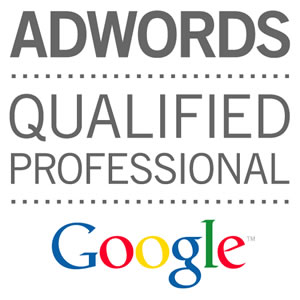PPC Fridays: Compliment Your Offline Advertising With Pay Per Click
One of my favourite parts of managing Adwords campaigns for clients is that each and every campaign is completely unique and brings with it its own set of unique needs. I mention this because over the last week I had the opportunity to discuss the value of Adwords with a small business owner that felt his current marketing, which was mainly offline, targeted all of his potential clients and there was no need for online marketing, let alone Adwords. He was quite skeptical of this whole idea of “online marketing”.

Furthermore, the business owner recounted to me that when he sent out a direct mailer and received a call, that he had a very good closing rate on those leads. Pretty impressive I would say! He went on to tell me about all of the data he was getting from his mailings. The conversation piqued my interest.
How could Adwords work for this small business? It seems like he has really honed in on his exact potential customer with his offline advertising. What benefit would Adwords be?
A few reason that I presented as to why Adwords would still be of benefit to his company and that are applicable to any business are as follows:
I compared and contrasted the differences in the inherent nature of direct mail marketing versus pay per click, or search marketing in general. The main point being that for this particular small business that an active search on Google for within in his geographic location is the equivalent of the person that is searching in the phone book back when they had phone books! The potential prospect is actively looking for a solution to a problem, that his business could satisfy. In contrast, a direct mail flyer is exposing his advertising to someone who may be a potential prospect in terms of they own a house that is of the type he works with, but not actively looking for a solution to a problem with that house. Just as a general example, lets say a home owner in his target market does not have his mailer handy to refer to. That home owner is going to go to Google and search for a solution. The power of being able to advertise at the time of need during a search, is part of the fundamental power of pay per click. How many potential leads was his business losing because a prospect he sent a direct mailer too didn’t have that mailer when they were actively looking for a provider. When the prospect searches for a solution, they do not see an ad for his company either. We will never know how many missed opportunities occurred, but I would put forth the perspective that there were lost opportunities to connect with potential prospects because of the lack of online exposure to provide a solution at the time of need.
Next, I mentioned to him that even if a home owner in his particular market did have his mailer handy, chances are they are still going to search online. The ubiquitous nature of search, and Google in particular offer a perfect opportunity to solidify his position as the leading provider to solve the searchers problem. I presented the scenario of the right kind of home owner, that has already been exposed to his offline advertising, they perform a search for a relevant term and are presented with his ad further strengthening the perception in the prospects eyes that his business is the right solution. Again, pay per click is working in conjunction with another form of advertising or marketing method to solidify his businesses position as the premier provider in his market.
My final point was that the value of the data provided with pay per click fills in many of the gaps of the process from being exposed to an ad and becoming a prospect. To further expound on the differences between direct mail and pay per click, with direct mail leads, he is only getting data from the prospects that are moved to action. Good information to have no doubt, but what about information on those that are not moved to action and do not contact him? He has information that the prospect was exposed to his advertising and they chose not to act, or they did act by contacting him. There are quite a few people between those extremes that he is getting no information on. Information that can be used to better communicate and refine his message, increasing the likelihood of motivating someone exposed to his ad to action.
Pay Per Click addresses this gap in information on two levels. First is that it allows you to get a measurement of the activity in a close to real time, controllable way. High quality data such as when a search is performed, and more importantly why a search was performed. What was the intent of a search that displayed an ad is the core of what makes pay per click advertising successful. This information can be used to hone a particular message to speak directly to the right prospects at the right time. This same successful online message can be used offline and tested there for further optimization.
I could go on!
Ultimately this discussion leads me to the point of where I could not think of a situation where pay per click would not compliment existing marketing efforts. Between the opportunity to focus on a person actively searching for a solution to a problem, the precise data provided, and ability to compliment other marketing, pay per click and in particular Adwords is an indispensable tool for small business marketing.